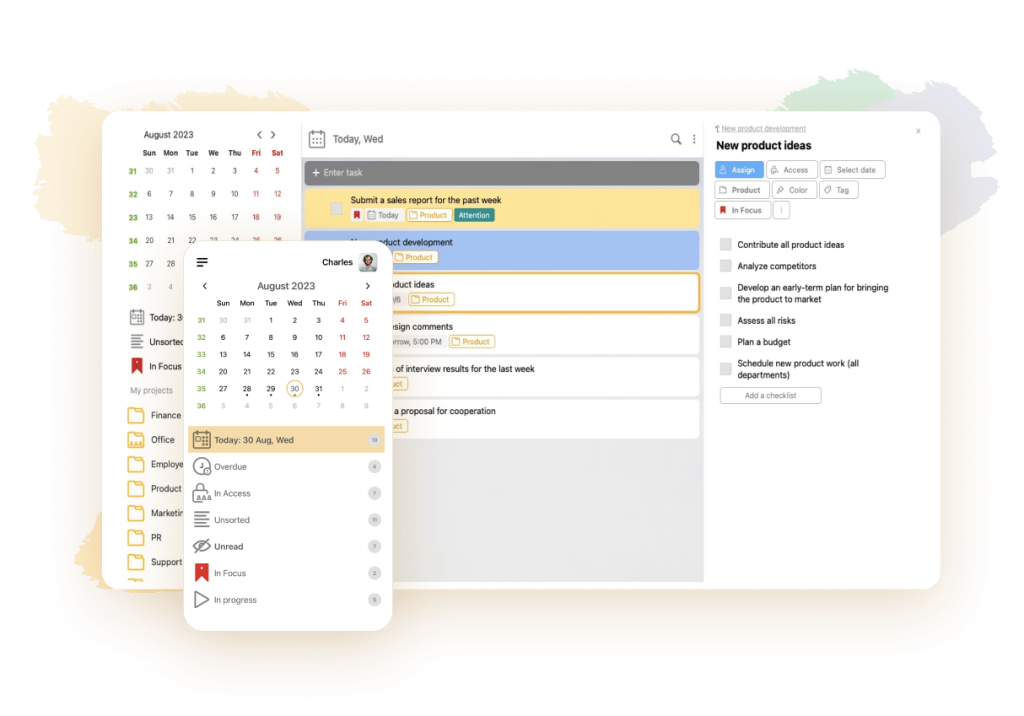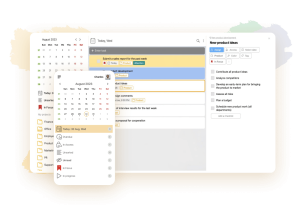What a project manager does

Project activities are becoming popular in various business spheres. With the development of this trend, the need for competent managers – project managers – is growing. Many companies operating in various sectors of the economy are interested in them: from public administration, construction, medicine to marketing, design and IT.
What is this profession? What does a project manager do? What skills should he possess to succeed, to build a successful career? Let’s find out what place this person occupies in the system of project management, what qualities he or she must possess in order to bring real benefit to the company.
Who is a project manager: role in the Project Management system

The project manager is the coordinator, the person responsible for determining the direction of the team. He or she is responsible for planning, budget allocation, the mood of the participants, their achievements, failures, and the overall success of the project. Ideally, he or she should be able to predict problems before they occur so that timely action can be taken to minimize the consequences. This is a specialist in a particular field, acting as a supervisor of a group of people engaged in solving common problems. He establishes links between the performers and the customer. He selects and groups the resources needed to solve the task set by the customer or senior management, provides the final results to the customer and makes the necessary adjustments in accordance with his wishes.
The role of a project manager should be distinguished from that of an operational or functional manager. Operational managers ensure the efficiency of business operations. Functional leaders manage individual business units. A project manager may report to a functional manager or a company manager. The functions of a project manager can be performed by any experienced employee of the company, the direct head of the division or a specially invited specialist.
Tasks and functions of the project manager

The main goal that every project manager pursues is to achieve a perfect result that satisfies the customer 100%. He makes efforts to complete the project on time without exceeding the budget. His functions include:
- Determination of the composition of the work.
- Establishing, documenting dependencies between individual work processes.
- Estimating their duration, developing the critical path of the project.
- Drafting of the charter, description of goals, objectives, result to be achieved by the end of the project works.
- Developing a project plan with defining its milestones.
- Calculating the time required to complete it.
- Estimating the volume and cost of resources.
- Developing an incentive program for team members.
- Organization of meetings to discuss the progress of the work.
- Analyze risks and deviations in work processes.
- Project finalization and archiving with final information provided to stakeholders.
As part of its activities, it performs the following tasks:
- Formulates goals, tests them for feasibility;
- Coordinates work timelines and project requirements with the client;
- Breaks down the total scope of tasks into individual steps;
- Compiles technical, project documentation;
- Allocates responsibilities among team members;
- Organizes secure and convenient storage of information;
- Supervises the activities of performers, motivates, supports them in case of difficulties;
- Delegates tasks to contractors;
- Develops alternative solutions to problems, makes appropriate decisions to resolve problems quickly;
- Provides reporting to senior management.
The role of the project manager varies at different stages of the project:
| Initiation | Planning | Execution | Completion |
|---|---|---|---|
| Sets goals and objectives. Assembles a team. Justifies the relevance of the project. Develops a strategy. Highlights the main stages of work. | Establishes timelines for the implementation of each phase. Plans budget, resources. Develops project schedule and roadmap. | Works with performers. Controls work processes. Takes action when deviations from the plan occur. | Summarizes the work. Analyzes the results. Closes the project. Builds a knowledge base. |
A project manager works with huge amounts of information. His or her functions also include drawing up documentation, organizing negotiations and meetings. He analyzes the results achieved and develops plans for further actions. In order to achieve success and progress in achieving the set tasks, it is important for him to clearly understand what tasks have already been completed and what the employees are doing at the moment.
A project manager is required to combine many functions simultaneously, so the success of the project and therefore the effectiveness of the manager will largely depend on the planning and proper allocation of resources. Fortunately, there are many programs designed to help organize your time and the work of your team. And a manager should be able to work with them.
Personality characteristics, skills of the project manager

The personality of the manager affects the future fate of the project. His risks and responsibilities are often much higher than those of some line managers. Many decisions have to be made under conditions of uncertainty, for which he or she is personally responsible. Therefore, this role is often assumed not by an employee with relevant education, but by an experienced, charismatic and self-confident leader.
Every manager applying for a project management position must possess certain character traits:
- Logical thinking. He sees the whole picture of what is going on, realizes at what stages of the project work problems may arise. Makes plans that actually work. Looks for alternative ways of solving problems on the way to achieving the set goals.
- Self-confidence. This helps the manager to inspire and motivate his subordinates. A strong person who has no doubts about his/her capabilities and abilities is an excellent role model for other team members to follow.
- Initiative. Without the gift of persuasion and oratory, it will be difficult for the project manager to convince the executors of the expediency of certain actions. He should have an active life position, propagandize and promote it in the team.
- Stress tolerance. A professional must calmly and judiciously perceive any problems. Not to panic in force majeure circumstances, to find optimal ways out of crisis situations.
- Flexibility in management and decision making. The realization of a project requires a certain amount of time. It is influenced by various internal and external factors that can change rapidly. A competent manager does not fixate on blindly following the points of the original plan. He or she is not afraid to adjust the strategy in the light of updated information.
- Responsibility. He is responsible for decisions made or not made, for the results of the team’s work. Does not look for excuses in case of failures, does not shift the blame for failures to the team members.
- Punctuality, discipline. An effective project manager knows how to manage his time and the time of his subordinates rationally. He or she respects project deadlines and makes sure that employees do the work assigned to them on time.
- Empathy for others, sensitivity to their needs. People are the main resource of any project. Every experienced manager knows this. Therefore, he should treat his team members with care and understanding, know their peculiarities and character traits. This will help to organize a favorable microclimate in the team, prevent disputes and conflicts.
Job responsibilities of the project manager

The responsibilities of project managers vary from organization to organization. In some cases there are more or fewer of them. It all depends on the specifics and scope of the company’s activities. An approximate list of responsibilities can be found in a standard job description. It is used as a base, adapted and used in the work. To successfully cope with his functions, the project manager needs to develop the following skills:
- Ability to maneuver through the flow of events occurring on a project, navigating the legislative framework of the industry.
- Ability to move quickly to different types of planning to solve local and strategic problems.
- The skill of time management of performers for prompt and timely completion of project work. For this purpose, it is important to use appropriate software that helps to make work processes transparent and understandable for each employee.
- A desire to improve their intellectual and educational level.
A project manager must regularly improve his qualifications. New methods and technologies for project management are constantly appearing in the business sphere. To be in demand on the labor market and to qualify for a high salary, he needs to be fluent in these techniques. He can use the acquired knowledge and skills outside the office, making working plans, controlling their execution, effectively and quickly finding solutions to emerging problems.
How to determine the effectiveness of a project manager
To numerically assess the effectiveness of this position, special tools are used, which are tests with questions. For the answers, the person being questioned receives points. They are summarized by various categories. Based on the results obtained, conclusions are drawn about the competence, professional suitability of the manager. These techniques include:
- LeaderCase methodology based on a set of case studies;
- LeaderChart, an advanced technique that includes cases for emotional and logical intelligence;
- “Test-Assessment” and “Business Profile” psychological testing tools.
Profit margins and KPIs are also used to measure this performance.
Effective project management with LeaderTask

The organization of work on a project begins with setting goals, developing related tasks and distributing them to team members. For this purpose, modern companies use special software that makes these processes visual and understandable for each performer. Such applications include the domestic development of LeaderTask.
The program is convenient to use for planning, organizing teamwork and tracking tasks. It works on all digital platforms and synchronizes with popular services. It functions without an internet connection, allowing you to stay up to date wherever you are.
In the application you can create, manage projects, plans, delegate tasks to subordinates. Control the quality of their fulfillment, tracking the progress of each employee on a convenient graph. Keep track of time using the built-in calendar. Switch between different types of planning. Visualize work processes on Kanban boards. Communicate with other team members in corporate chat. Attach comments to tasks. The trial version of the program can be downloaded and installed for free.
Conclusion
Project Manager is a complex, complex, multi-functional role. It requires experience, well-developed communication skills, and a desire for constant development. In essence, a project manager is a team member with a certain set of responsibilities. To become a real leader it is important for him to learn how to set correct goals, finding the best ways to realize them. Effectively interact with his subordinate colleagues to gain their trust and authority. Thanks to these actions, he will successfully complete any project and lead the team to success.



